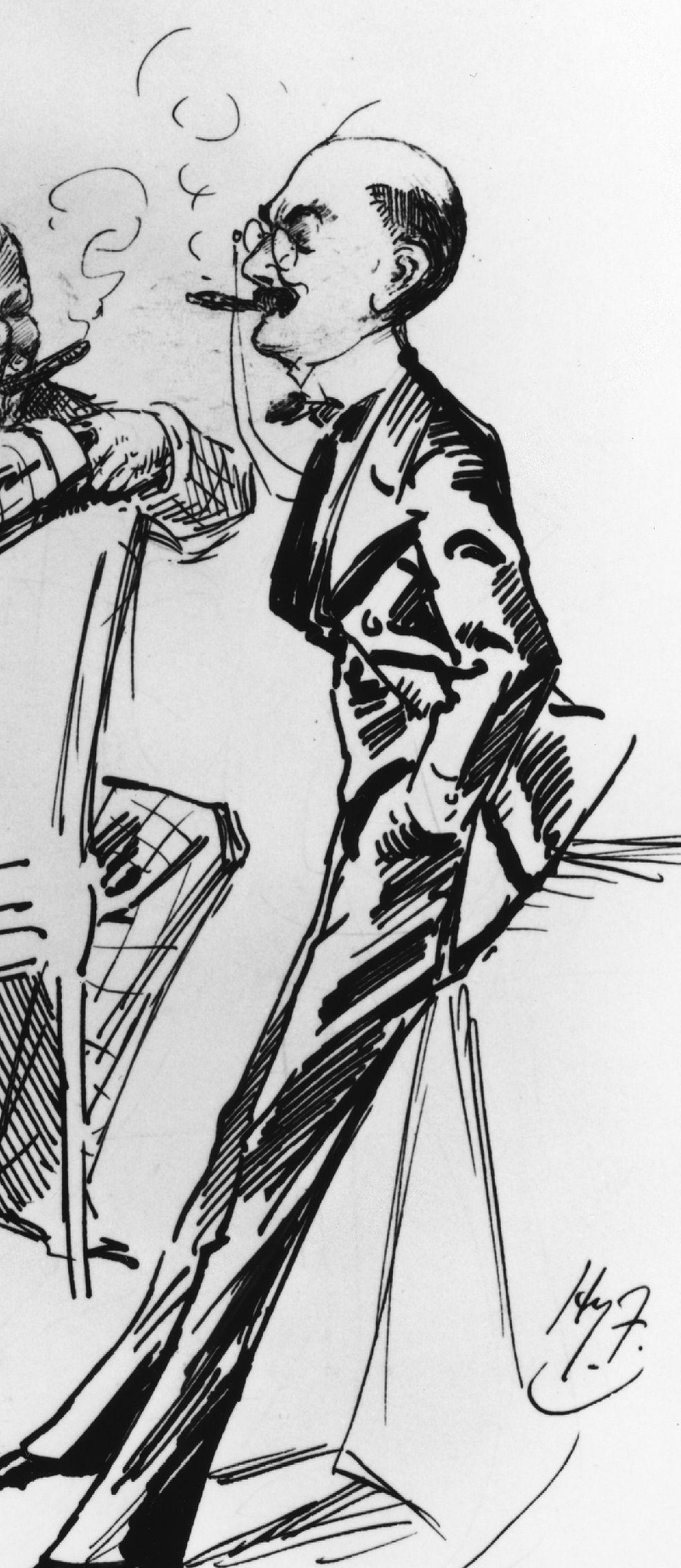“Two or three days at sea are equivalent to at least as many weeks on shore.”
Prologue
Tourmalin's Time Cheques (1885)
F. Anstey, pseudonimo di Thomas Anstey Guthrie , è stato uno scrittore e giornalista britannico, principalmente noto per il romanzo Vice-versa: una lezione per i padri al quale si è ispirato un tema di opere narrative e del cinema fantastico, quello sullo "scambio di corpi" . Wikipedia

“Two or three days at sea are equivalent to at least as many weeks on shore.”
Prologue
Tourmalin's Time Cheques (1885)
Origine: The Brass Bottle (1900), Chapter 14, “Since There’s No Help, Come, Let Us Kiss and Part!”
“Models of manly beauty are rare out of novels, and seldom interesting in them.”
Origine: The Brass Bottle (1900), Chapter 1, “Horace Ventimore Receives a Commission”
Origine: The Brass Bottle (1900), Chapter 6, “Embarras de Richesses”
Origine: The Brass Bottle (1900), Chapter 7, “Gratitude—a Lively Sense of Favours to Come”
Origine: The Brass Bottle (1900), Chapter 3, “An Unexpected Opening”
Origine: The Brass Bottle (1900), Chapter 3, “An Unexpected Opening”
“Candour’s the cement of friendship.”
Origine: The Brass Bottle (1900), Chapter 1, “Horace Ventimore Receives a Commission”
“Veracity, as thou wilt learn,” answered the Jinnee, “is not invariably the Ship of Safety.”
Origine: The Brass Bottle (1900), Chapter 17, “High Words”
Origine: The Brass Bottle (1900), Chapter 8, “Bachelor’s Quarters”
Origine: The Brass Bottle (1900), Chapter 4, “At Large”
Origine: Tourmalin's Time Cheques (1885), Chapter 8, “Paid in His Own Coin”
Origine: Tourmalin's Time Cheques (1885), Chapter 3, “The Third Cheque”
““No doubt the fault was mine,” said the Professor, in a tone that implied the opposite.”
Origine: The Brass Bottle (1900), Chapter 3, “An Unexpected Opening”
Origine: Tourmalin's Time Cheques (1885), Chapter 2, “The Second Cheque”
“And you suppose that, knowing how I have changed, he will believe that!”
she cried. “He will fire long before you can finish one of those fine sentences!”
Origine: Tourmalin's Time Cheques (1885), Chapter 8, “Paid in His Own Coin”